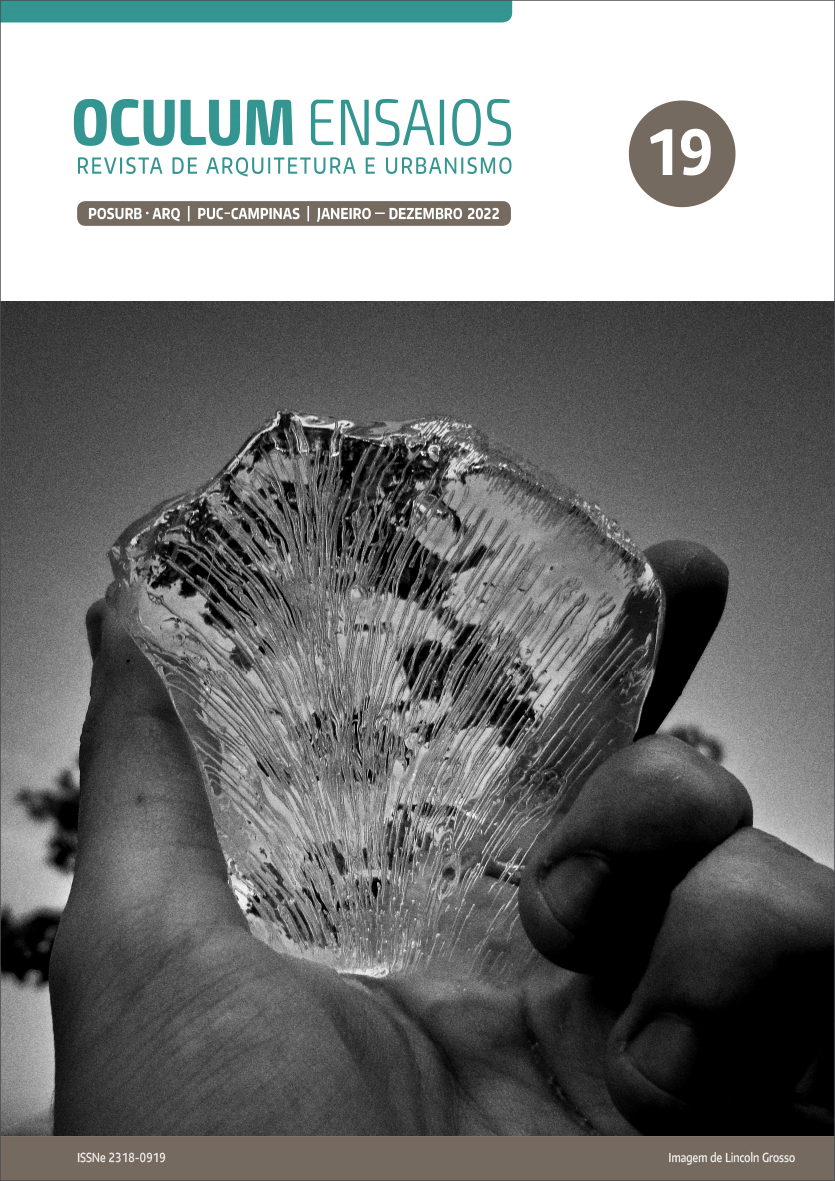Digital ethnographic experience
a narrative about pandemic in Complexo do Alemão
DOI:
https://doi.org/10.24220/2318-0919v19e2022a5193Keywords:
Complexo do Alemão, Covid-19, Crisis, Technological devicesAbstract
The arrival of Covid-19 provoked urban and sanitary transformations that exacerbated social weaknesses. Measures to restrict the movement of people imposed other rhythms of life. However, technological devices have played an important role in the potential actions to confront the imposed conditions and active performance in the construction and remodeling of social interactions by reinforcing how hybrid they have become, constituting an agency for other ways
of accessing urban space to be possible. This thought places the internet as an entry field for other ways of looking in “real-time”, at the city narratives that have been told during the pandemic. Supported by the fog metaphor, what matters here is how network communication tensions the sense of mobility, making it possible to investigate other methods of constituting
narratives about urban spatial relations. In particular, the narratives of groups for whom social weaknesses and the right to the city were already an issue to be faced even before the pandemic. The organization of community groups of Complexo do Alemão in social networks to address urgent community issues inspired the use of digital ethnography as a proposal to rehearse fieldwork in that community. In this sense, this article
intends to observe the virtual field as an extension of traditional ethnography, so that online (being there, in the clouds) and offline (being here, in writing) are inseparable positions in these pandemic narratives.
Downloads
References
ALVES, A.; FERRAZ, C. Da Etnografia virtual à etnografia online: deslocamentos dos estudos qualitativos em rede digital. Caxambu: ANPOCS, 2017. Disponível em: http://anpocs.com/index.php/encontros/papers/41-encontro-anual-da-anpocs/spg-4/spg10-4/10962-da-enografia-virtual-a-etnografiaonline-deslocamentos-dos-estudos-qualitativos-em-rede-digital. Acesso em: 13 de nov. 2020.
HAN, B. C. No enxame: perspectivas do digital. Petrópolis: Vozes, 2018.
HINE, C. Virtual Ethnography: modes, varieties, affordances. In: FIELDING, N. The SAGE Handbook of online research methods. London: SAGE, 2008. p. 257-270.
HINE, C. Ethnography for the Internet: embedded, embodied and every day. London: Bloomsbury Academic, 2015.
LARROSA, J. Tremores: escritos sobre experiência. São Paulo: Autêntica, 2014.
LATOUR, B. Reagregando o social: uma introdução à teoria do ator-rede. Salvador: Edufba-Edusc, 2012.
LÉVY, P. O que é virtual? São Paulo: Literatura, Ed. 34, 1996.
MARANDOLA JUNIOR, E. Mobilidades contemporâneas: distribuição espacial da população, vulnerabilidade e espaços de vida nas aglomerações urbanas. In: CUNHA, J. M. P. Mobilidade espacial da população: desafios teóricos e metodológicos para o seu estudo. Campinas: Nepo/UNICAMP, 2011. p. 95-115. Disponível em: http://www.nepo.unicamp.br/publica coes/livros/mobilidade/cap5.pdf. Acesso em: 17 set. 2020.
SOUSA SANTOS, B. A cruel pedagogia do vírus. Almedina: Coimbra, 2020.
VATTIMO, G. A Sociedade transparente. Lisboa: Relógio D’água, 1992.
WISNIK, G. Dentro do nevoeiro: diálogos cruzados entre arte e arquitetura contemporânea, São Paulo – SP. 2012. 262f. Tese (Doutorado em Arquitetura e Urbanismo) – Universidade de São Paulo, São Paulo, 2012.













